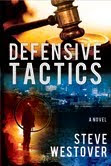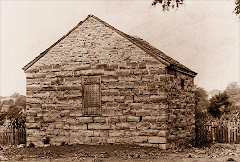
We all know that trust is hard to earn but easy to lose, kind of like money. Without trust, society plummets into chaos so it is important to build and maintain relationships of trust.
.
Why would we work if we didn't trust that we would be paid by our employer for our effort? Why would we marry if we didn't trust our spouse to be loyal and loving? Why would we invest our time in an activity if we didn't trust that we would find some value? The answer to these questions is...We Wouldn't and We Don't.
.
Another way of saying we don't "trust" someone or something, is saying that we don't "believe" they will do what they say they will do. We base these judgements on our own experience and the trusted experience of others. If I work at my job and my paycheck bounces, I have lost trust in my employer because I don't believe my employer is reliable enough to pay me. I don't believe I will experience the benefit from the work. At this point it may be difficult to rebuild my trust in that employer. If it is possible to regain trust it will take time and consistent demonstration from that point on that I will be paid on time and my check will not bounce.
.
Trust also plays a role in how we choose our media, be it books, TV, movies, music or internet news. Let me share a simple formula for trust that I recently came across.
.
TRUST=r+d
.
r is Reliability and d is Delight
.
Maybe this is too simplistic but lets take a look. If I value reading books that don't glorify inappropriate sexual relationships, foul language or excessive violence and gore I will seek out those kinds of books from sources I trust. I will trust those sources because they have demonstrated to me that they are reliable in their clean content and I will delight in reading a story that jives with my moral sensibilities. Through my personal experience and the experiences of others who I place my trust in, I believe that I can find good, clean reading through publishers and writers that cater to the LDS audience. If I were to purchase a book from a trusted publisher or author and found graphic sex, language and violence in that book, the trust would be broken. If, after a period of time I found them to be reliable again so I could delight in the reading, my trust in them would be restored.
.
In business we call this "Know your customer" and in writing we would call it "Know your audience". "Trust comes from meeting and beating customer expectations." We must know who we are writing for. We must know what their expectations are and we must be consistent in both the quality of the story we tell and the content with which we tell it. If we fail to meet the expectations of our readers we will lose their trust.
.
I used the example of clean, PG rated reading as something I value and expect but in every aspect of writing we can either build or destroy trust. We can build trust through our style, language, plot strength, believability of characters, so on and so forth.
.
As we prove ourselves to be reliable in providing quality, well-crafted stories that are clean and appropriate we will bring delight to our readers. When the reader delights in our book they will seek out our next book. They will return to our publisher for similar books and we will have established a valuable relationship of trust.
.
What can an author do to gain the trust of his reader?
Has an author ever lost your trust? How or why?
.
Why would we work if we didn't trust that we would be paid by our employer for our effort? Why would we marry if we didn't trust our spouse to be loyal and loving? Why would we invest our time in an activity if we didn't trust that we would find some value? The answer to these questions is...We Wouldn't and We Don't.
.
Another way of saying we don't "trust" someone or something, is saying that we don't "believe" they will do what they say they will do. We base these judgements on our own experience and the trusted experience of others. If I work at my job and my paycheck bounces, I have lost trust in my employer because I don't believe my employer is reliable enough to pay me. I don't believe I will experience the benefit from the work. At this point it may be difficult to rebuild my trust in that employer. If it is possible to regain trust it will take time and consistent demonstration from that point on that I will be paid on time and my check will not bounce.
.
Trust also plays a role in how we choose our media, be it books, TV, movies, music or internet news. Let me share a simple formula for trust that I recently came across.
.
TRUST=r+d
.
r is Reliability and d is Delight
.
Maybe this is too simplistic but lets take a look. If I value reading books that don't glorify inappropriate sexual relationships, foul language or excessive violence and gore I will seek out those kinds of books from sources I trust. I will trust those sources because they have demonstrated to me that they are reliable in their clean content and I will delight in reading a story that jives with my moral sensibilities. Through my personal experience and the experiences of others who I place my trust in, I believe that I can find good, clean reading through publishers and writers that cater to the LDS audience. If I were to purchase a book from a trusted publisher or author and found graphic sex, language and violence in that book, the trust would be broken. If, after a period of time I found them to be reliable again so I could delight in the reading, my trust in them would be restored.
.
In business we call this "Know your customer" and in writing we would call it "Know your audience". "Trust comes from meeting and beating customer expectations." We must know who we are writing for. We must know what their expectations are and we must be consistent in both the quality of the story we tell and the content with which we tell it. If we fail to meet the expectations of our readers we will lose their trust.
.
I used the example of clean, PG rated reading as something I value and expect but in every aspect of writing we can either build or destroy trust. We can build trust through our style, language, plot strength, believability of characters, so on and so forth.
.
As we prove ourselves to be reliable in providing quality, well-crafted stories that are clean and appropriate we will bring delight to our readers. When the reader delights in our book they will seek out our next book. They will return to our publisher for similar books and we will have established a valuable relationship of trust.
.
What can an author do to gain the trust of his reader?
Has an author ever lost your trust? How or why?

























No comments:
Post a Comment